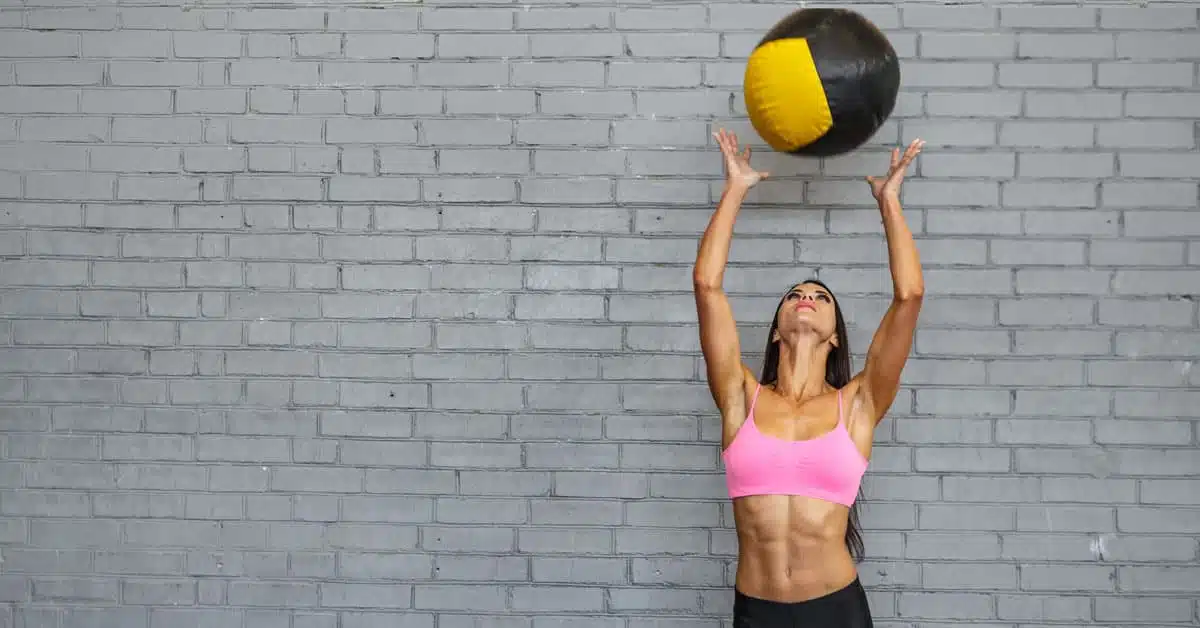With increasing training experience, our routine in the gym understandably increases, which naturally also has an effect on the probability of making mistakes. This is no wonder, because after all, after long years of training, you have experienced pretty much everything there is to experience and accordingly have not made any mistakes for a long time, right? Well, this assumption is simply wrong and is based exclusively on pure overestimation of oneself, because especially experienced athletes perceive obvious mistakes much worse than one would think possible. It is even often the case that serious errors are simply ignored due to false ambition and the resistance to advice hides behind hollow phrases such as "no pain, no gain" and completely ignores the signals of the body. The result is sometimes long-lasting injuries that can ruin the training success of several months. To make you aware early on that even experienced athletes are not immune to this, we list below 10 training mistakes that almost every athlete makes at some point.
Mistake 1 - Not understanding that the organism is a total construct.
Anyone who exercises regularly will sooner or later feel his body, because it is quite realistic that the knees or back once in a while report in a painful way. However, only very few people understand that the cause of back or knee complaints is not always to be found exactly there, which leads to the fact that there is also no real improvement in the situation. At this point it is important to internalize that no part of the body should be considered in isolation, because everything forms a functional unit that only works optimally in combination. So if you ever have back pain or knee problems again, you should perhaps also think about what other causes could be involved. Often, in the case of the back or the knees, it is the muscles of the rear thigh that cause the problems, as they have a significant influence on the clean execution of various exercises. So it's worth not always accepting the most obvious explanation right away.
Mistake 2 - You go about things too fast
The motivation to get involved in new things is essential, especially in weight training, and can hardly be replaced by anything else. Nevertheless, you should not rush it, because just because you have mastered a few exercises in living perfection, it does not mean that this applies to all exercises. After all, a short-distance runner doesn't try to run a marathon right away. This analogy is especially true in weight training, because your organism has to learn new movements slowly in order to really internalize them and be able to perform them effectively as well as safely and under stress. So nothing is gained with a cold start, because in the worst case scenario, you'll get a long-lasting injury right from your first walking attempts. So take your time and work on your technique day after day, week after week, and you will see that you make continuous progress.
Mistake 3 - You don't care about your mobility
Of course, weight training is primarily about developing strength - how could it be otherwise? What is always criminally neglected in this context is flexibility. What you may not have known is that mobility is even more important for your physical development and muscle building than moving weights alone. Why? Simple, because the greater the number of muscle fibers activated, the greater the weight you can move. So the bottom line is a much higher growth stimulus. If you neglect to train your flexibility, the potential range of motion within which you can effectively perform your exercises will be reduced. This results in a lower growth stimulus. You should therefore take some time on two to three days per week and work on your flexibility with the appropriate exercises, which is particularly important for complex basic exercises.
Mistake 4 - You don't work on your technique
Many athletes make the mistake of focusing primarily on increasing training weights while training and completely lose sight of the importance of proper technique. Even a high training weight is of little use to you if you can only move it by massively deflecting it, because this way you neither reach the right muscle group nor a reasonable growth stimulus. What does increase, however, is the risk of injury. So if you really want to train effectively, it's essential that you focus on your technique and work on it continuously before you think of putting on another slice as a false ambition. Especially in the case of complex exercises like deadlifts and squats, get additional help from experienced athletes. They usually know exactly what is important.
Mistake 5 - You stick with the old familiar
One of the main factors for long-term training success is variety in the area of workout routines, because your body is trimmed for efficiency and can accordingly deal with already known movement patterns more and more relaxed, so that the visible progress is always less. Consequently, you should not stick to one training pattern for too long, but change your habits once in a while to shock your organism and force it to adapt. In practice, however, it has not proven helpful to throw the entire workout over every four weeks. It is much better to regularly replace individual exercises that address the desired target muscles through a different movement sequence and thus both set new stimuli and provide scope for the regeneration of particularly stressed structures.
Mistake 6 - You pay too little attention to your body
Especially as an athlete, your body is your capital. That's why you shouldn't follow the quick-and-dirty principle after your workout and get out of there as quickly as possible, but instead give your body a little attention. The most important thing is to relieve some of the tension in your muscles with a light cool-down as well as light stretching, foam rolling or a hot bath. It is obvious that such a relaxation phase takes time and is not everyone's cup of tea. Nevertheless, you should attach importance to it, as it significantly promotes the regeneration of your muscles.
Mistake 7 - Ignore injuries
True to the motto "no pain, no gain," most athletes push themselves past pain in training or go to the gym even with an obvious injury so as not to miss a session. The motive is quite noble but in the final analysis no more than counterproductive, because the stress on injured tissue usually only results in more protracted injuries, which can sometimes drag on for weeks and months, destroying many months' progress. In the worst case, for example, an injury to the passive musculoskeletal system can even become chronic, with long-term consequences for the job. Knee and shoulder injuries in particular are not to be trifled with, especially as the connective tissue structures are much more sensitive and regenerate more slowly than the muscles, for example. So it's better to take a week longer off than to ignore the injury through false ambition.
Mistake 8 - Leave training altogether when injured
Just because you have a knee or shoulder injury doesn't mean you should stop exercising at all. Rather, it is important that the organism is still loaded in order not to lose too much performance. For example, use a knee injury to focus more on your upper body and iron out any weaknesses and imbalances there, while your knees and the surrounding structures can regenerate in peace. Have you injured your shoulder or does your wrist hurt? Then follow the reverse pattern and focus on the lower body. Excuses do not count!
Mistake 9 - You train too much
Motivation is a big part of the secret to success in weight training. The problem with many highly motivated athletes, however, is that they overdo it with their training and train far too often and far too intensively. As a result, you damage your muscles as well as your bones, ligaments, tendons and joints, because they are no longer able to regenerate properly due to the constant intensive load. Ultimately, you get into the overtraining feared by many and thus make more regression than progress. The solution to this problem is trivial in itself, because all you have to do is give your rest days as much importance as your training days.
Mistake 10 - You are not eating right
The best training is useless if the diet is not right, because a good 70 percent of success in muscle building is actually based on the diet. So if you're eating too little protein, junk food, and not enough food in general, it's easy to see why you're struggling. Make sure you eat a balanced, protein-rich diet with whole foods that meet your daily needs for all the essential macro- and micronutrients, and you'll see the results come almost naturally. Don't forget to drink enough fluids, because this not only keeps your circulation going, but also ensures that you can develop your full performance capacity during training and thus set maximum growth stimuli.










